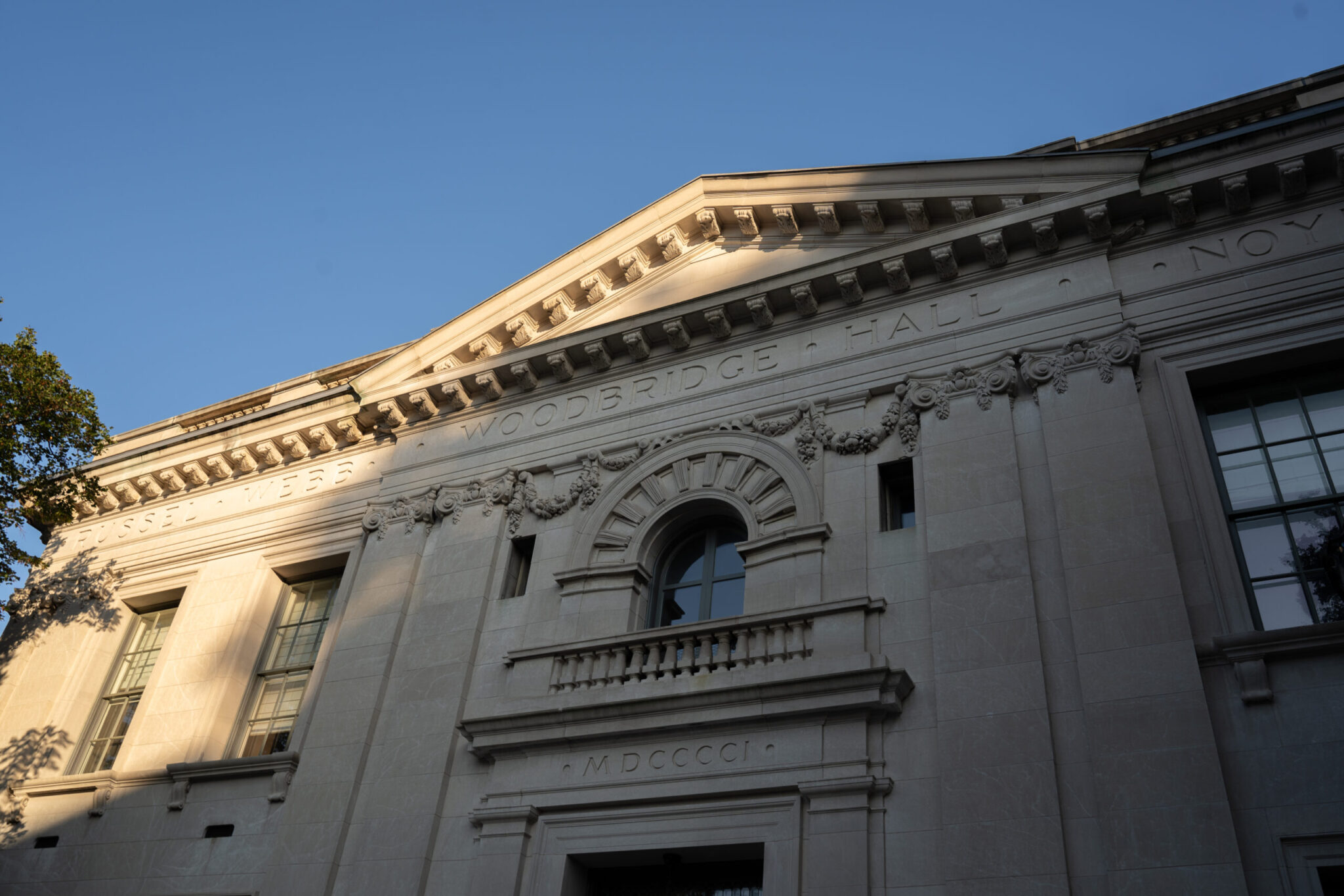Student coalition demands divestment from weapons manufacturers, threatens hunger strike
In a letter to Yale President Peter Salovey, a group of 12 students threatened to go on a hunger strike if the University does not announce divestment by the morning of Friday, April 12.

Ellie Park, Photography Editor
In a letter sent to University President Peter Salovey on Wednesday afternoon, a group named Hunger Strikers for Palestine threatened to begin a hunger strike if Yale University does not publish a statement by the morning of Friday, April 12 committing to divestment from weapons manufacturers “contributing to Israel’s assault on Palestine,” the group wrote.
The letter, which was posted on Instagram in collaboration with Graduate Students for Palestine on Instagram, Yalies4Palestine and Law Students for Justice in Palestine, was signed by Hunger Strikers for Palestine, which consists of around 12 graduate and undergraduate members.
“We will risk our bodily health and wellbeing, in ways that mirror only a fraction of the absolute devastation that Palestinians are suffering right now, until [the University meets our demands],” the hunger strikers wrote in the letter. “Yale’s complicity in genocide must end.”
In its Oct. 7 attack on Israel, Hamas killed 1,200 people and took more than 250 people as hostages. In response, Israel launched a military offensive in Gaza and has, as of April 9, killed at least 33,360 Palestinians in Gaza, according to the Gaza Health Ministry, though experts believe this death toll to be an underestimate by thousands. Israel reports that Hamas currently holds 133 hostages, of whom 36 are confirmed dead.
In their letter, the group referenced a policy that the Yale Corporation adopted in 2018, which banned investment in retail outlets that market and sell assault weapons to the general public. In a statement announcing the policy, the Yale Corporation Committee on Investor Responsibility supported a conclusion from the Advisory Committee on Investor Responsibility that “mass shootings cause incontrovertible societal harm and retailers supplying assault weapons to the general public cause grave social injury.”
The hunger strikers called for Yale to extend its commitment to the safety of students and teachers from gun violence to the war in Gaza.
“Just like domestic shootings, the Israeli military causes ‘incontrovertible societal harm’ and ‘grave social injury’ as they decimate the educational infrastructure in Palestine,” the strikers wrote, quoting language from the CCIR’s statement.
The Yale Corporation has not divested from weapons manufacturers, but the ACIR is currently reviewing the University’s investment policies, per a University spokesperson. The review was first alluded to in November 2023, when University President Peter Salovey wrote to the News that the ACIR was “considering whether there are grounds to revisit” its 2018 policy in line with Yale’s ethical investment policy. In February 2024, the University confirmed that a review considering calls to “extend [the 2018] policy to cover manufacturers who effectively retail to the general public is nearing its conclusion,” according to Yale’s spokesperson.
Most recently, Heather Tookes, chair of the ACIR, stated in an April email to the News that the ACIR would prepare to update the Yale community regarding the review “in the coming weeks.”
Beyond the University’s investment policies, the hunger strikers also criticized the University’s lack of response to student protest on the subject.
“Over the last six months, we have exhausted every mode possible of making our voices heard to you with no answer and no change,” the letter reads. “People have gone through the proper channels and received no response.”
The letter referred to actions from student activists in the past year, including but not limited to attending the ACIR’s annual open meeting in November 2023, staging a protest in February 2024 and inviting Yale trustees to a town hall in April 2024.
The Yale Corporation will next meet on April 20.







